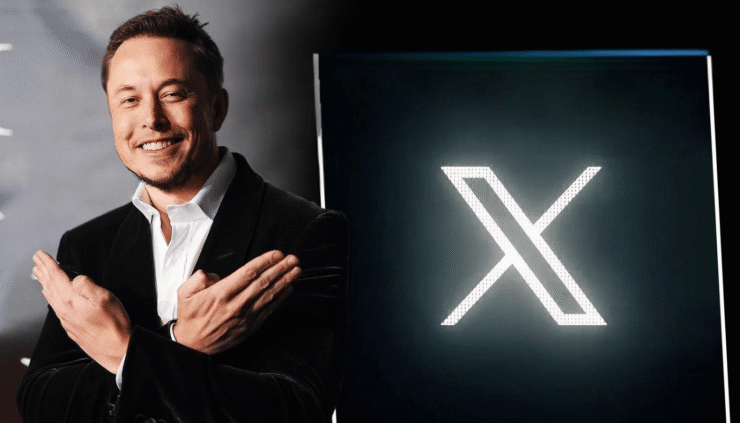Elon Musk’s weekend announcement of XChat—a new messaging platform set to launch on X (formerly Twitter)—has sparked both excitement and skepticism across the tech world. Musk claimed that the new feature would be built using Rust and secured by what he described as “Bitcoin-style” encryption—a phrase that quickly drew scrutiny from cryptographers and Bitcoin developers.
According to Musk, XChat will support encrypted messaging, disappearing messages, file transfers, and integrated audio/video calls—all without requiring a phone number. The service is a key part of Musk’s larger vision to transform X into an all-in-one “super app.”
Experts Question the Technical Claims Behind Musk’s Encryption Pitch
Musk’s claim of “Bitcoin-style” encryption was immediately challenged by prominent figures in the crypto community. Bitcoin Core developer Luke Dashjr responded bluntly:
“Bitcoin doesn’t even use encryption.”
Instead of encryption, Bitcoin uses cryptographic primitives such as SHA-256 hashing and elliptic curve digital signatures (ECDSA) to secure transactions and validate ownership. These mechanisms serve different purposes than the end-to-end encryption typically used in private messaging applications.
JAN3 and Pixelmatic CEO Samson Mow also pointed out that Bitcoin is not encrypted in the traditional sense, emphasizing that Musk’s description was more of a branding flourish than a technical truth.
Adding to the confusion, Musk noted that XChat would be “built on Rust.” While Rust is a popular language for secure software, Bitcoin’s original codebase is written in C++. Rust-based Bitcoin clients—like BDK and Rust Bitcoin—have only gained traction more recently.
So far, X has not published any technical whitepaper or architectural overview for XChat. Without clear documentation, security experts remain cautious, speculating that the encryption claims are more aspirational than grounded in technical reality.
Despite the ambiguity, Musk’s statements underscore his ambition to reshape X as a privacy-centric communications hub. Whether that ambition translates into truly secure infrastructure—or just marketing hype—remains to be seen.
Musk Doubles Down on X Ecosystem
The announcement of XChat coincides with a wave of high-profile developments across Musk’s business empire. Days after stepping down from his role on the Department of Government Efficiency, Musk returned to the headlines—this time with both explosive setbacks and ambitious rollouts.
Last week, a SpaceX rocket suffered a mid-air explosion, but Musk reaffirmed his commitment to long-term goals like building a Martian colony within the next two decades. The incident did little to slow down progress on the transformation of X into a multifunctional platform.
Alongside XChat, the company recently launched X Money, a new digital wallet feature that hints at future integrations with payments and possibly cryptocurrency. While details remain sparse, the move strengthens speculation that X may evolve into a Western counterpart to China’s WeChat—combining messaging, finance, and commerce into one seamless interface.
Adding to the buzz, a rumored $300 million partnership with Telegram was quickly denied. Telegram CEO Pavel Durov claimed a collaboration was underway with Musk’s AI venture, xAI, but Musk dismissed the claim in a short post:
“No deal has been signed.”
The denial signals Musk’s intention to maintain an independent course as he reimagines the future of X and its surrounding ecosystem—a future packed with bold promises and enough turbulence to keep the tech world watching.
Quick Facts
- Musk announced XChat, an encrypted messaging service built in Rust, on X.
- The feature claims to offer “Bitcoin-style” encryption, though experts note Bitcoin doesn’t use encryption at all.
- XChat will offer disappearing messages, file sharing, and calls—no phone number required.
- Musk also unveiled X Money, a new digital wallet, fueling speculation of deeper crypto integration.
- Rumors of a Telegram partnership were denied by Musk, affirming X’s independent direction.





